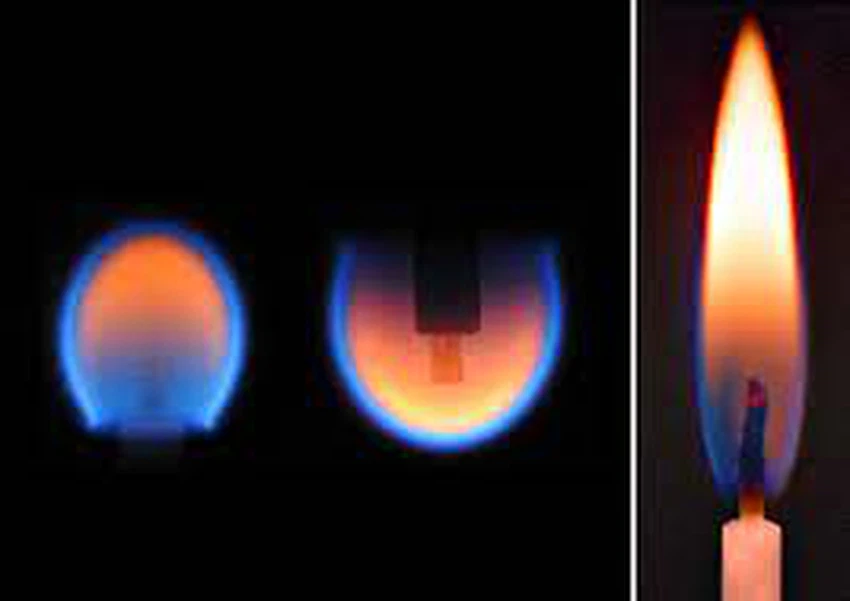Fire in a way you have never seen before. A dangerous experiment inside the International Space Station
Arabia Weather - Although fire is one of the oldest tools used by humans, we are still discovering new things about it even today. We may think we know everything about fire, but the truth is that there is a lot we don't know yet.
The Chinese "Shenzhou 16" mission crew team carried out an exceptional experiment in space, which included lighting an open flame inside the Tiangong space station. The astronauts Gui Haichao and Zhou Yangzhou conducted this unique experience when they lit a candle while giving a live lecture that was broadcast from inside the Tiangong station. Chinese space satellite on September 21, and their goal was to explain how flames break out in the conditions of microgravity in space.
How does fire take shape on Earth?
Answer: When hot air rises near the base of the flame to the surface of the Earth, it attracts cold, dense air by gravity to replace it, supplying the flame with the necessary oxygen, and this is what gives the fire its famous teardrop shape.
But in a microgravity environment , like the one astronauts encounter during their orbital journeys, things change dramatically. Here, the hot air continues to expand outward, but it doesn't move upward because there is no altitude. Instead, fires in space rely on random molecules of oxygen wandering around that are accidentally picked up by the fire.
What shape does fire take in space?
Answer: What is remarkable is that flames in space appear almost spherical, unlike the flames we see on Earth, which take the teardrop shape we know.
On Earth, flames when candles burn are generated by a convection current formed by rising hot air and descending cold air, but in the microgravity environment of low-Earth orbit, the effect of the convection current of combustion is weak. This means that the flame spreads in all directions, resulting in a spherical flame.

Tiangong Lectures
The live-streamed lecture is the fourth in what is known as the “Tiangong Classroom,” a series of lectures hosted by the Chinese Space Station. During this series, the astronauts interacted with students in five different classrooms across China, resulting in a group review. One of the exciting phenomena associated with microgravity.
Through these lectures, the astronauts were able to explain that physical processes behave very differently in the space environment compared to what we know on Earth, and they provided practical examples that clearly illustrate these differences.
However, it should be noted that the astronauts' candle lighting experiment contravenes the normally strict safety rules regarding flammable materials and open flames on board the International Space Station.
Combustion in a microgravity environment has been the subject of several experiments conducted on the International Space Station. However, specially designed compact combustion racks are usually used in these experiments, which helps keep the fire contained and suppressed, and reduces the risk of it spreading and impacting the surrounding environment.
Taikonauts in missão Shenzhou-16 had a demonstração education in the mostrando espaço that came to the point where they were microgravid and in the fog of a fun place!! pic.twitter.com/Rhk5ZVCBjG
— Sacani (Space Today) - AKA Gordão Foguetes (@SpaceToday1) September 23, 2023
Also know:
On International Coffee Day... How Sultan Al Neyadi prepared coffee in space
Does a trip to space cost less than the cost of making a movie about it?
Extracting oxygen from the Martian atmosphere
Sources:
Arabia Weather App
Download the app to receive weather notifications and more..



